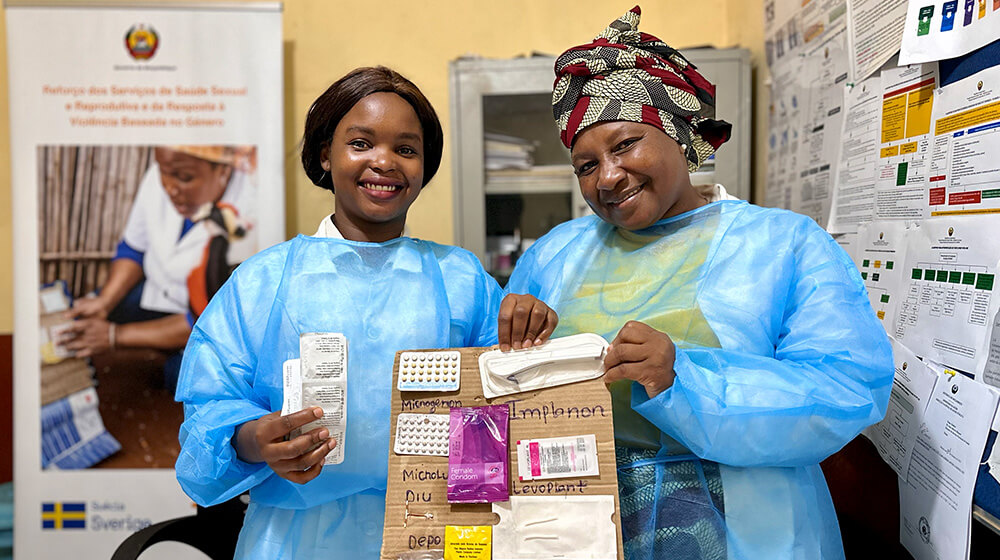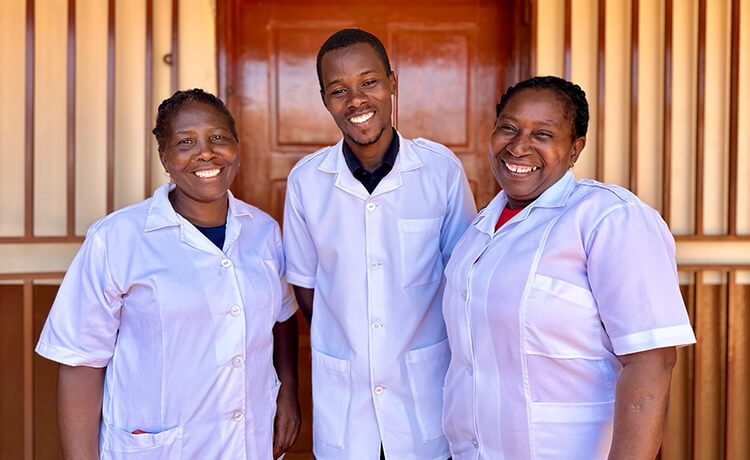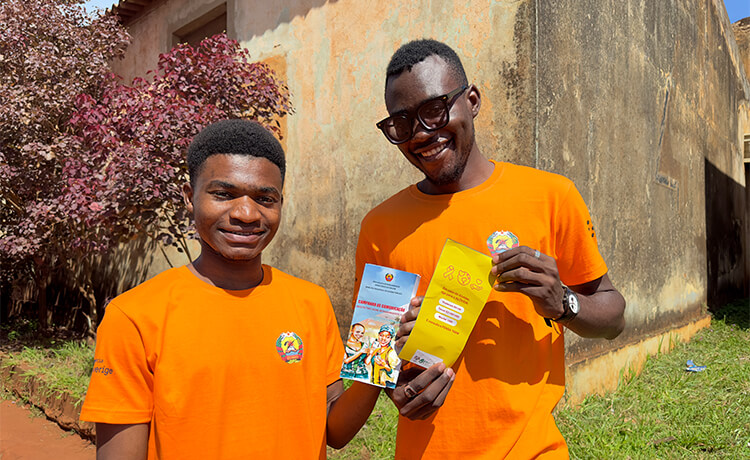UNFPA Supports Sexual and Reproductive Health in Mozambique

NIASSA PROVINCE, Mozambique – Early in the morning, lines begin to form outside the Lichinga Health Center in Mozambique.
Nearby, health workers provide essential reproductive health services, including crucial HIV tests and information on family planning. This commitment to service provision is vital as communities in the region face challenges such as violence, insecurity, and health crises.
The initiative is especially beneficial for women and girls. Here, over 40% are or were teenage mothers, and HIV prevalence rates for women exceed 10% — double the rate for men.
Since 2017, the regions of Niassa, Cabo Delgado, and Nampula in Mozambique have experienced increasing attacks by non-state armed groups. This has led millions to seek safety by fleeing their homes. The violence coincided with frequent climate emergencies, including flooding, droughts, and powerful cyclones. These events triggered malaria and cholera outbreaks.
Ongoing instability and damaged health facilities heightened the risks of pregnancy and childbirth complications. Conflict and displacement also made women and girls more vulnerable to violence and trafficking.

Ensuring services amid crisis
Despite the crisis, the Lichinga health clinic and UNFPA are committed to swiftly responding to emergencies and providing communities with critical healthcare.
“In five years, the health services have changed, capacities have increased and family planning has started to work,” said Pascoal Vilanculos, who heads the public health department in Lichinga. “With the support of UNFPA now we can do family planning with long-acting methods, and early pregnancies have decreased in the district.”
In Mozambique, only around 25% of women are using modern contraception. Limited services and accessibility have resulted in elevated rates of unintended pregnancies, maternal deaths due to pregnancy and childbirth complications, and unsafe abortions.
To help fill this gap, UNFPA is distributing contraceptives and raising awareness through mobile teams and clinics across northern Mozambique. In Niassa, health providers from all 16 districts have received training on long-term family planning methods, such as the pill, implants, and intrauterine devices.
Supporting people living with HIV
Through the Lichinga center, community leaders and volunteers have also spoken to around 2,500 adolescents and young people from the region. These conversations include discussing the cultural barriers to sexual and reproductive health and the stigma surrounding HIV and AIDS.
“We do this because it’s about our health and our future, and the well-being of our families, of those we love,” explained Filipe, 20, a youth community activist.
“When young people test themselves and the result is positive, I work [with them] on accepting their status. As a community, it’s our duty to embrace them.”
Young advocates and activists encourage others to make informed decisions about their bodies and take charge of their sexual and reproductive health. They also work with health officials to ensure people can choose the contraceptive options that meet their needs.
“We use this approach in schools to make young people aware of family planning and of HIV and AIDS. That’s why we have a condom distribution campaign,” explained José Manuel, director of the provincial health service.

Promoting bodily autonomy
The center has a particular focus on meeting the needs of vulnerable populations such as LGBTQI+ individuals and people with disabilities. A collaboration with Rádio Moçambique and Radio Comunitária de Cuamba resulted in 360+ broadcasts discussing sexual and reproductive health services and violence against women and girls. Presented in local languages like Ciyao, Cinyanja, and Emakhuwa, these efforts reached approximately 1.6 million people in Niassa province alone.
“Girls’ sexual and reproductive rights are being guaranteed – they choose what to do with their own bodies, as it should be everywhere,” added Jose.